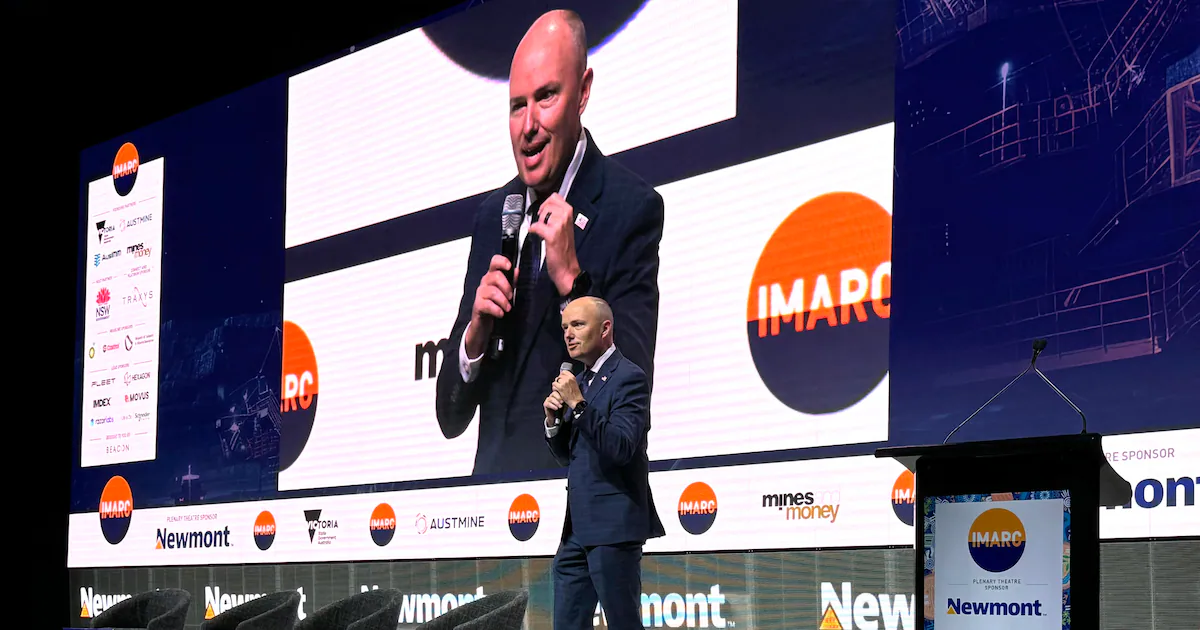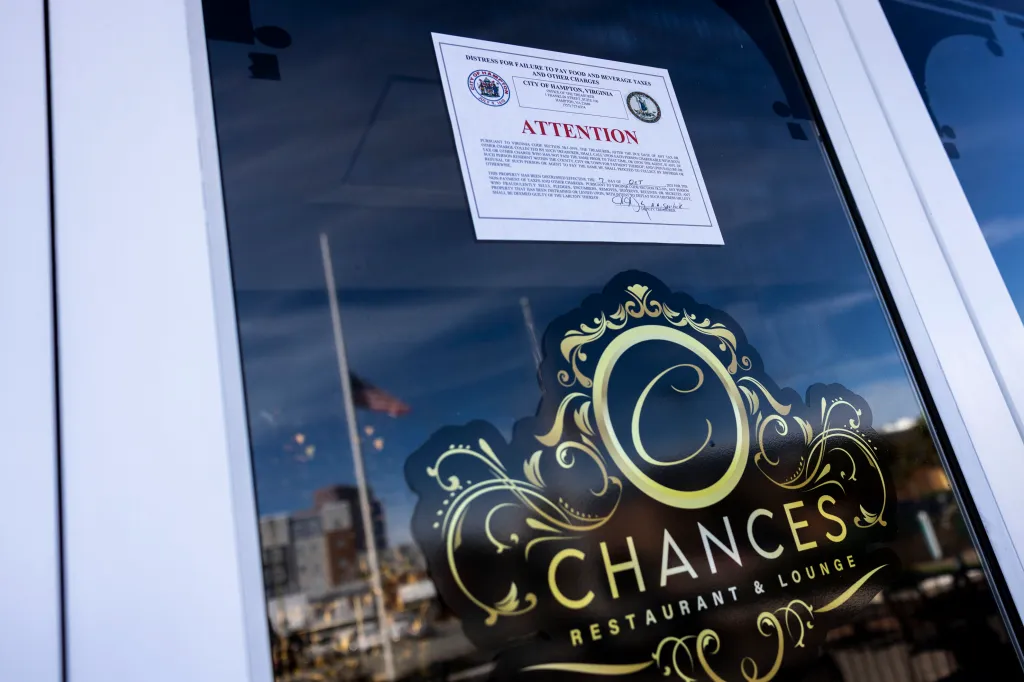Copyright Salt Lake City Deseret News

SYDNEY, Australia — Global mining executive Bruce Richardson remembers being a kid and getting a bit bored eating his toast smeared with Vegemite — that distinctly Australian food spread made from leftover brewers’ yeast. So young Bruce would add a bit of honey to his Vegemite. Immediately, the toast was far more appetizing. That harmonious Vegemite/honey blend doubles as an analogy in today’s headline-grabbing world of critical minerals and rare-earth resources, said Richardson at Wednesday’s International Mining and Resource Conference being hosted by Australia’s largest city. Vegemite, of course, is an Australian product. And Utah — the Beehive State – produces high-quality honey. For Richardson, they always taste better “working” together. That same Australia/Utah compatibility, he said, applies to critical minerals mining. “We have complementary skills — we can work together.” Richardson — who serves as the president/CEO of A1 Lithium Inc. in Utah’s Paradox Basin — was part of an IMARC panel discussion Wednesday made up of several delegates from the World Trade Center Utah in Sydney for an ongoing trade mission. Joining Richardson on the panel were Logan Shumway of White Mesa’s Energy Fuels and Joel Ferry, the executive director of Utah’s Department of Natural Resources. The panel discussion was moderated by another delegate, Matt Schaub from Associated Universities Inc. Their messages echoed what Utah Gov. Spencer Cox said earlier Wednesday in his plenary speech to conference participants from around the globe: For critical minerals mining, investment and innovation, Utah is open and eager for business. Trump and Australia’s leader fortify critical minerals partnership The World Trade Center Utah’s 2025 trade mission to New Zealand and Australia has been in the works for several months. So some call it serendipitous that the Utah delegation — which includes lawmakers, educators and industry leaders — would be participating in Australia’s IMARC at a moment when critical and rare minerals are snagging global headlines. On Monday, President Donald Trump and Australian Prime Minister Anthony Albanese signed an $8.5 billion critical minerals deal at the White House in an agreement designed to counter China’s domination of the critical minerals market. Critical minerals are vital to the United States and other developed nations because they are used in everything from fighter jets and electric vehicles to laptops and cellphones. Earlier this month, Beijing announced that it will require foreign companies to get approval from the Chinese government to export magnets containing even trace amounts of rare-earth materials that originated from China or were produced with Chinese technology, The Associated Press reported. The Trump administration says this gives China broad power over the global economy by controlling the tech supply chain. “Australia is really, really going to be helpful in the effort to take the global economy and make it less risky, less exposed to the kind of rare earth extortion that we’re seeing from the Chinese,” Kevin Hassett, the director of the White House’s National Economic Council, told reporters Monday morning ahead of Trump’s meeting with Albanese. The agreement could have an immediate impact on rare earth supplies in the United States if American companies can secure some of what Australian mines are already producing, although it will take years — if not decades — to develop enough of a supply of rare earths outside of China to reduce its dominance, The Associated Press reported. The agreement, The Associated Press added, underscores how the U.S. is using its global allies to counter China, especially as it weaponizes its traditional dominance in rare earth materials. Top Trump officials have used the tactics from Beijing as a rallying cry for the U.S. and its allies to work together to try to minimize China’s influence. “China is a command-and-control economy, and we and our allies will neither be commanded nor controlled,” Treasury Secretary Scott Bessent said last week. “They are a state economy and we are not going to let a group of bureaucrats in Beijing try to manage the global supply chains.” During his roundtable discussion with his fellow World Trade Center delegates, Richardson said Utah is a capable, proven partner in the critical minerals industry. “The Utah government has really stepped up and speeded up all their approval processes, which is very significant for us. Our market is now the United States — and now we’re bringing in Asian companies as our partners to develop that.” Why is Utah an attractive critical minerals partner? Utah’s highly developed infrastructure makes it an ideal locale for critical mineral operations, said Richardson. There’s power, water, roads and rail networks — all infrastructure luxuries not widely available in, say, western Australia. And, he added, Utah’s government and its citizens are proven allies. Utah, said Shumway, makes for an ideal critical mineral partner. “If you go to Utah, you’ll just find a lot of people that are hard working, capable and competent,” he said. “If you give them a project to work on, they’ll do well with it. Hopefully we can turn Utah into a very well known and enhance our processing capabilities.” Following Wednesday’s delegate roundtable, Ferry told the Deseret News that the ongoing trade mission is revealing global interest in Utah mining. “Utah has a plethora of rare earth and critical minerals, and it’s what’s going to power our future. It’s what’s going to enable us to grow.” New technologies, he added, will allow the mining industry to be cleaner, safer and more efficient than ever before. And those benefits to Utah will stretch beyond simply creating jobs. “When we make the investments in these mineral extraction, we’re really enhancing and improving the opportunities for our children and grandchildren for a brighter future, for a better future,” said Ferry. “I’m convinced there’s nowhere in the United States, or in the world, that can do it better than we can do it — and these companies that are here (at IMARC) agree. “We’re talking with international companies that are looking at doing projects in Utah, and they agree that Utah is a great place to do business.” For some, hearing terms such as “mining” and foreign mining movements on Utah prompt fears that something precious will be lost or endangered. But Ferry is confident that enhancing Utah’s critical minerals industry is not a zero-sum game. “We can harvest, we can mine and we can extract in a sustainable way that does not detract or degrade from our ecosystem and from our natural environment — but in a way that allows us to benefit as Utahns.” Gov. Cox: Critical minerals at a critical moment In his plenary remarks at IMARC on Wednesday, Cox said he is leading an ongoing Utah trade mission “Down Under” that was organized months ago when no one could have known that, simultaneously, the executive leaders of the U.S. and Australia would be signing a historic critical minerals agreement. “We also did not know that there would be a government shutdown with the federal government in the United States — meaning that I am here representing not just the 3.5 million people in Utah, but over 350 million people in the United States, from the federal government who could not make it here for this impressive conference.” Maximizing critical minerals opportunities at a historic moment, Cox added, demands innovation. Raw materials are important — but without innovation, they’re simply rocks and dirt. “But we live in a time when we can take those rocks and we can take that dirt and we can separate it and we can process it. “We can turn it into things like magnets. And we can inject it into the human body. We can solve the greatest problems that have faced humankind because of the innovation that exists.” Cox then took a few moments in his plenary speech in front of a global audience to brag on Utah, touting the state’s strong economy, GDP growth and established mining industry. “That means that the opportunities that exist in Utah are tremendous right now — and the agreement that was signed between Australia and the United States is going to unlock opportunities that we have that we have never seen before.” The governor reeled off several Beehive State mining highlights: Utah is the sole domestic producer of beryllium concentrate, and accounts for over 55% of estimated global production of beryllium concentrate. Utah is the only U.S. producer of magnesium metal. Utah is one of two states producing lithium as a byproduct — and one of only two states producing high-valued potash. Utah has the only conventional uranium mill in the United States — the White Mesa Mill near Blanding. That mill also produces “rare earth elements” while having the capacity to grow production. But for would-be global partners, Utah’s qualities stretch beyond mining operations, said Cox. Utahns speak more languages, per capita, than anywhere else in the U.S. And the state now boasts a rebuilt international airport and, in 2034, will welcome the Winter Olympics for the second time. Utah, he said, “cares deeply” about its trade partnerships. “We believe that we should treat our allies with dignity and respect — and that when we work together, we can solve any problem. “We must get out of this ‘scarcity mindset’ and into an ‘abundance mentality’ that when we work together, we can solve the greatest problems that are facing our countries and facing humanity.” Cox said Utah’s renowned for its skiing and national parks. “And in between all of that natural beauty, we have some of the most important elements and critical minerals that exist.” And, he added, “now we have an administration that is helping us to unlock that.” The governor concluded saying past administrations made it “a little hard to sometimes do business” on public lands owned by the federal government. “That is changing,” he said. “We have significantly increased our capacity to permit projects. In the state of Utah, we have moved permitting on state lands from about 200 days down to about 45 days.” Speedy permit approvals for mining operations in Utah on federal lands are also happening, Cox added. “We are open for business — and we hope to see you there.”



